APAMO Demands Respect From G.O.B.
There are currently one hundred and three protected areas in Belize and of that number, twenty-eight of them are managed by members of the Association of Protected Areas Management Organization. And today, at a press conference hosted by APAMO, members have voiced concerns over possible changes to the management system to be put in place by the Ministry of Sustainable Development and Climate Change. These concerns include a lack of communication, accountability and funding. New’s Five’s Britney Gordon attended the press conference today to hear more about these issues. Here’s that story.
Britney Gordon, Reporting
In a country where roughly fifty percent of the GDP is dependent on tourism, the management of natural resources is a vital part of maintaining economic stability. In Belize, there are several entities responsible for the protection and upkeep of all protected areas. The Association of Protected Areas Management Organization, APAMO, is responsible for managing twenty-eight of those areas. However, some changes recently proposed by the Ministry of Sustainable Development and Climate Change have raised concerns with the organization. Amanda Acosta, Chair, of APAMO details those concerns.
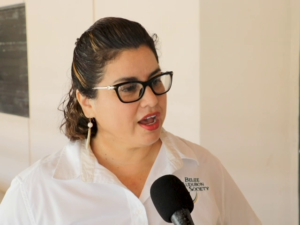
Amanda Acosta
Amanda Acosta, Chair, APAMO
“APAMO has sent a letter to the ministry that is, Substantively responsible for these acts, which is the Ministry of Sustainable Development and Climate Change. We sent it June twenty-second. We have not gotten an acknowledgement nor a response to that email. But in that letter we broke down our concerns specific to the ENPASS Act and to the PACT Act. There are individual concerns per each piece of legislation. I would say there’s more regarding the end pass bill. But overall, our major concern is the process. It has not been an active participatory process. We feel that the 2030 years Plus worth of experience that the APAMO membership provides has not been tapped into to make this legislation as robust as it can be or as perhaps as effective as it can be.”
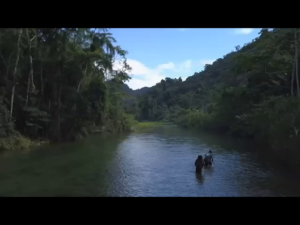 Concerns raised by the organization include grey areas of responsibilities for comanagers and their partners, as well as difficulties accessing funding for the upkeep of the resources. The organization claims that it has been two years since a grant was provided by PACT. Acosta further explains that a shift towards the micromanagement of the NGO’s daily operations does not bode well for the well-being of the protected areas.
Concerns raised by the organization include grey areas of responsibilities for comanagers and their partners, as well as difficulties accessing funding for the upkeep of the resources. The organization claims that it has been two years since a grant was provided by PACT. Acosta further explains that a shift towards the micromanagement of the NGO’s daily operations does not bode well for the well-being of the protected areas.
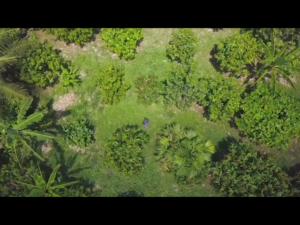 Amanda Acosta
Amanda Acosta
“So the co management agreement that several of us have signed or the framework under which we have worked has given us day to day authority for the protected areas. So in other words, we determine the opening hours, we determine activities, of course, based on the designation of the protected area. Each protected area is designated either a national park or a wildlife sanctuary, and that really sets up the framework of what can and cannot happen there in terms of activities. So we feel that it’s superfluous, it’s not necessary to have to break down into the details of informing them. There is a need for governance, and we understand that we ultimately, it’s national parks, it’s for the people of Belize, and so there needs to be governance structures and accountability, but it does not have to come down to micromanagement, for lack of another way of putting.”
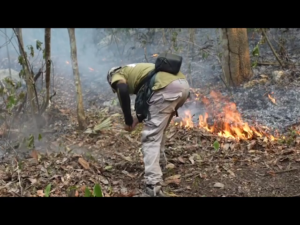 During the recent wildfires that destroyed several thousand acres of land across the country, multiple organizations banded together to extinguish the flames. Maria Garcia, chairlady of the Itzamna Society maintains that the preservation of several protected areas was due, in large part, to the groundwork put in by the comanagers of these areas.
During the recent wildfires that destroyed several thousand acres of land across the country, multiple organizations banded together to extinguish the flames. Maria Garcia, chairlady of the Itzamna Society maintains that the preservation of several protected areas was due, in large part, to the groundwork put in by the comanagers of these areas.
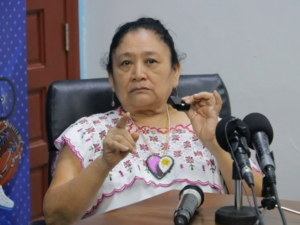
Maria Garcia
Maria Garcia, Chairlady, Itzamna Society
“They have been on the ground for years. They have the experience, the rangers working on the ground. They don’t have holidays and they don’t do it for the money. Look at the fire that just happened. Who was there? The caretakers of all these protected areas. Because the government didn’t have enough people to help you, you know, you call Forestry Department. They say we don’t have, you know, the resources. We have them in, in the South. We have them, you know, in the Mountain Parish. So who took care of all these protected areas? The people in charge of the protected areas. So we are one, and we want this legislation to be humbled to our level.”
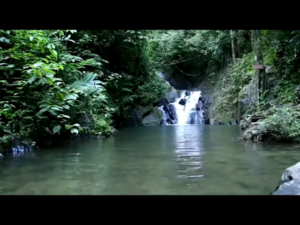 Ultimately, it is because of the groundwork and collective efforts carried out daily by the comanagers, that the organizations seek to be acknowledged, respected and included in decision making processes by the government, as they work towards the shared goal of managing Belize’s prized natural resources.
Ultimately, it is because of the groundwork and collective efforts carried out daily by the comanagers, that the organizations seek to be acknowledged, respected and included in decision making processes by the government, as they work towards the shared goal of managing Belize’s prized natural resources.
Amanda Acosta
“So we’re asking for today is really to be more involved in the dialogue and be able to raise these concerns to the people in making the decisions. So we’re asking for open dialogue. We’re asking for a response. to our letter. Again, acknowledgement of receipt with a time frame of when we are planning and also to have holistic involvement of all that the legislation will affect.”
Britney Gordon for News Five.





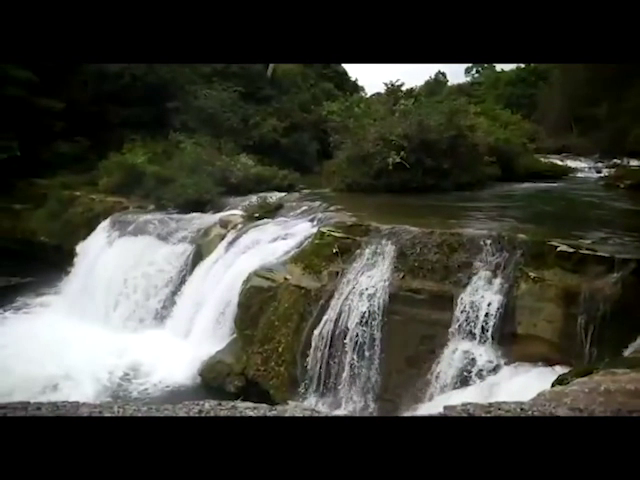
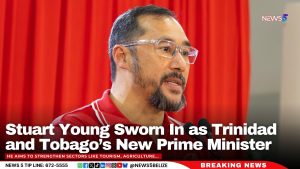
Facebook Comments